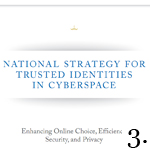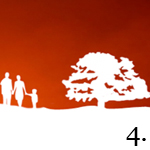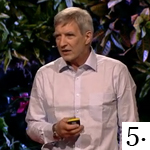Over at Wronging Rights, Kate and Amanda are puzzling over a recent TIME article that states the International Criminal Court is “compiling evidence of possible recent war crimes in southern Sudan, allegedly directed by Sudanese Defense Minister Abdelrahim Mohamed Hussein.”
This article—which name-drops George Clooney, weirdly enough—raises all sorts of questions. Kate and Amanda, who are Actually Lawyers, ask (and attempt to answer, somewhat) these questions far better than I can, given that I have but a single international human rights law class under my belt. That said, as I understand it, the ICC can’t just open investigations willy-nilly.
The ICC can only open a case if it: 1) is referred to them either by a state involved in the case (as in Uganda) or by the Security Council (as in Darfur, Sudan in 2005 and Libya); or 2) involves alleged crimes under the ICC’s jurisdiction, defined as crimes in which “the accused is a national of a State Party or a State otherwise accepting the jurisdiction of the Court” or crimes that “took place on the territory of a State Party or a State otherwise accepting the jurisdiction of the Court.”
The problem here is that neither Sudan nor the newly formed South Sudan is a state party to the ICC, meaning the only way this case makes sense is if the Security Council referred it, which it didn’t. Kate and Amanda ask:
So, uh, what gives? Did the TIME reporter get an Enough Project report and mistakenly conclude it was an internal ICC memo? Or is there some other reason why the ICC, a court of limited jurisdiction and limited resources, would be spending the latter on an investigation that is clearly outside of the former?
This is, to me, where things get sort of crazy. Kate and Amanda asked law professor Kevin Jon Heller to weigh in, which he did:
My best guess is — as they suggest — that the OTP has received assurances from the new South Sudanese government that it will either (1) ratify the Rome Statute and accept the Court’s jurisdiction retroactively, or (2) file a declaration under Article 12(3) of the Rome Statute accepting jurisdiction on an hoc basis over the crimes the OTP is investigating. Either way, the issue would be how far back in time South Sudan could accept the Court’s jurisdiction.
He goes on to suggest a weirder (to me—speak up, international human rights lawyers, if you have something even weirder to add!) possibility:
South Sudan could invoke the Eichmann “precedent” and argue that a state should have the right to give the Court retroactive jurisdiction over any and all crimes committed against its citizens, even if the state did not formally exist at the time of their commission.
Amanda responds with a pretty fascinating discussion of the difference between passive personality jurisdiction and active personality jurisdiction that I won’t attempt to recap here but that seems to indicate that the Eichmann precedent won’t actually get the ICC very far.
I’ve written before about my love-hate relationship with the ICC that’s mostly hate, and this latest apparently overreaching on the part of Prosecutor Luis Moreno-Ocampo feels like yet another misstep in a series of horrible missteps. That said, the pretend law geek inside of me is fascinated by it, and I’m looking forward to seeing if and how the ICC can justify this investigation as being under their jurisdiction.







